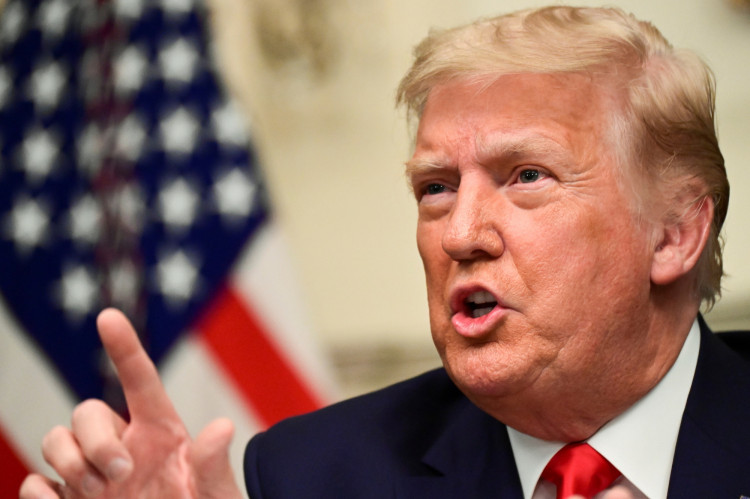In a pivotal development in the ongoing civil fraud trial against former President Donald Trump, New York appellate judge David Friedman has lifted a gag order that had barred Trump from making disparaging remarks about court staff. The decision, which temporarily suspends the gag order as a longer appeals process unfolds, raises significant questions about free speech implications.
Originally imposed by trial judge Arthur Engoron on October 3, the gag order came into effect after Trump posted false comments about Engoron's law clerk on social media. Engoron later expanded the order to include Trump's lawyers and fined the former president $15,000 for violating it. However, Judge Friedman's recent intervention now permits Trump and his legal team to comment freely about court staff.
Friedman's decision followed an emergency hearing where he expressed doubts about Engoron's ability to control what Trump says outside the courtroom. He challenged the notion that limiting Trump's speech was necessary or the correct approach to ensuring the safety of court staff. "Considering the constitutional and statutory rights at issue, an interim stay is granted," Friedman stated.
This legal twist came after Trump's lawyers filed a lawsuit against Engoron, accusing him of overstepping his authority with the gag order. They argued the order under Article 78 of state law, a provision allowing lawsuits over some judicial decisions.
Trump and his legal team have been increasingly critical of Engoron, labeling him an "extremely hostile" judge. Tensions escalated when Trump's team requested a mistrial, alleging evidence of bias by the judge. Engoron, who did not comment on the gag order ruling, is set to address the mistrial motion by December 8.
The appellate court's ruling has brought renewed attention to the trial, where Trump is accused by New York Attorney General Letitia James of inflating his wealth on financial statements to secure loans and make deals. The case continues to unfold amid heightened scrutiny and debate over judicial authority and the limits of free speech.
Trump wasted no time in responding to the ruling, taking to his Truth Social platform to criticize Engoron and the clerk, while reaffirming his intention to defend himself against what he perceives as biased treatment.
State lawyers and a court system representative had argued for maintaining the gag order, citing safety concerns for Engoron and his staff, who have reportedly received numerous threatening and antisemitic communications since the trial began. They attributed the increase in threats to Trump's remarks, drawing parallels to events like the January 6 Capitol riot and the attack on Nancy Pelosi's husband, Paul.
Despite these concerns, Trump's lawyer Christopher Kise praised Friedman's decision, emphasizing the importance of the former president's First Amendment rights to speak about his trial. Kise characterized the ruling as allowing Trump to expose perceived bias in the trial, which he argues is crucial for public transparency.






